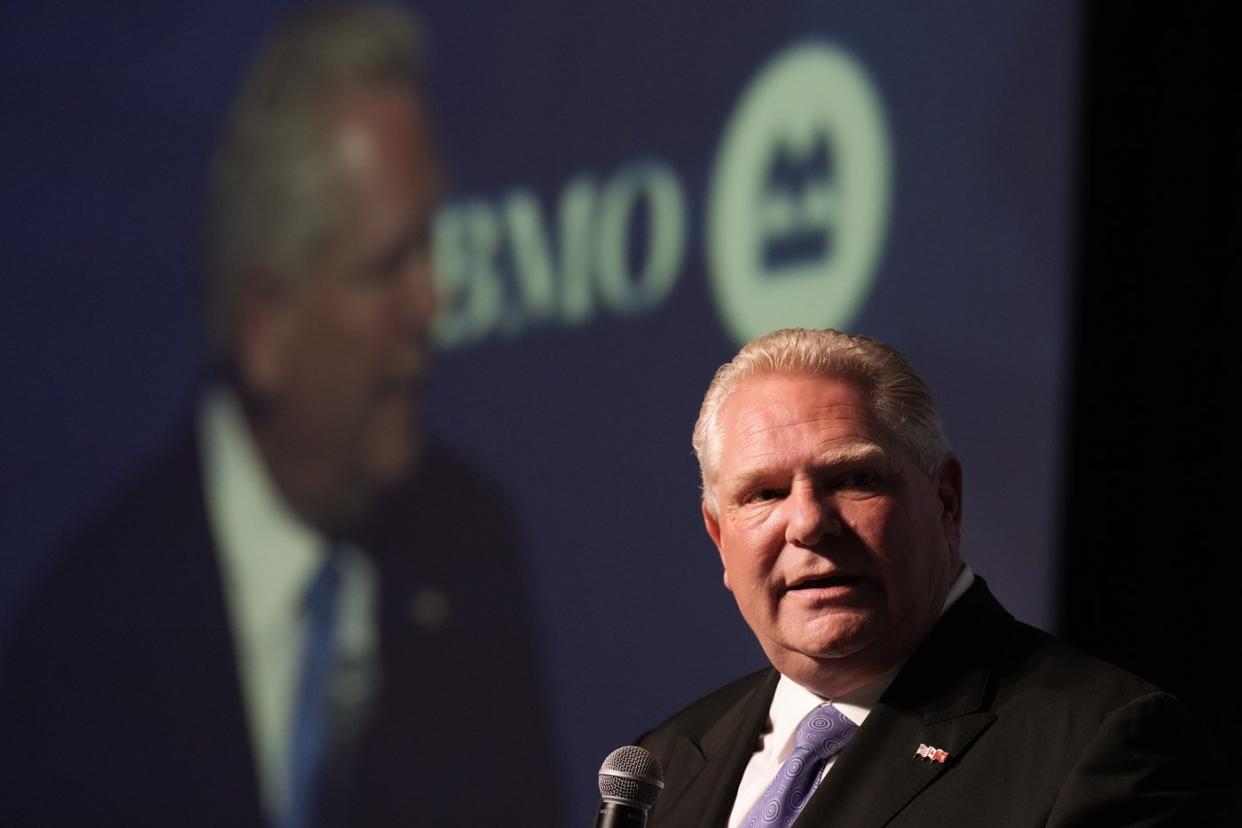Toronto daycare rolls back staff wage raises, blames Ontario's funding model

TORONTO — A large Toronto child-care operator is rolling back raises for staff, laying the blame on how the Ontario government is funding the national $10-a-day program.
The Learning Enrichment Foundation, which has 25 centres across the city, told parents in a recent letter that it had made the difficult decision to reduce pay because the way Ontario is funding the program is "placing the sector in jeopardy."
"Simply put, the ($10-a-day program's) funding formula does not fully cover the wages and expenses required to operate quality child care," the foundation wrote.
"The impact of this reality is being seen throughout the sector. Many operators, including LEF, have been forced into deficit."
Executive director Peter Frampton said in an interview that the LEF centres, like so many others across the province, were finding it hard to recruit and retain early childhood educators, so they raised the wages from about $26 an hour to $30 an hour.
That solved their staffing challenges, he said.
"The role of an ECE is so remarkable in child development, it is more than deserving of that wage – and that is really a minimum livable wage for Toronto," Frampton said.
"One thing, and we could stabilize child care across the province."
But in May, Frampton said it became clear that money had dried up and the foundation considered closing infant rooms or whole centres before settling on a wage reduction of $2.32 an hour.
"(The staff) have been remarkably understanding and resilient and we’re obviously spending a lot of time talking with them and explaining exactly what's happening," he said.
"Our hope is that the funding formula will allow us to reverse this decision."
Child-care centres, including the YMCA, the largest operator in the province, have been warning about the risk of closures if the funding formula isn’t soon updated to cover the actual cost of providing care, rather than just replacing the revenue they’ve lost from the now-discounted fees.
After several delays, the province told them in a memo in May that the new structure will be in place for 2025, but hasn't yet released the details of what that will look like.
Traditionally, child-care centres have raised parent fees when they faced rising expenses such as staffing costs, catering, rent, heating and supplies. However, any operator that wanted to sign on to the national plan had to freeze their fees in March 2022, and many had voluntarily frozen them since 2020, not wanting to raise rates during the COVID-19 pandemic.
That means the government’s revenue replacement model is based on rates that don’t reflect the true current cost of providing child care, and the amount Ontario has factored in for inflation — 2.1 per cent for 2024 and 2.75 for 2023 — is not cutting it, some operators say.
Alana Powell, executive director of the Association of Early Childhood Educators, said she knows LEF has done a lot of work to respect and value ECEs such as introducing an hourly wage top up for split shifts, but any reduction in wages is devastating.
"We're talking about folks being concerned about being able to make their housing costs, being able to buy groceries for their families," she said.
"At the end of the day, this is another example where, when child care is not appropriately funded and supported, the cost is really laid at the feet of those doing the work. The early childhood educators and child-care staff are again subsidizing the cost of child care with their wages and with their labour."
It is encouraging, she added, to hear that an hourly wage of $30 – which the association has advocated for – effectively solved the centres' recruitment and retention problems.
As part of the $10-a-day program, Ontario has set a wage floor for ECEs at $23.86 an hour, an amount that is set to rise by $1 an hour each year until 2026. That is higher than the initial wage floor set by the province, which would have seen the minimum this year at $20 an hour, but advocates say the level is still too low to make a meaningful difference.
Ministry officials have warned the province could be short 8,500 ECEs by 2026, the year Ontario hopes to have created 86,000 new spaces under the national child-care system.
Ontario has been pushing for more federal funding for the Liberal government's signature program.
"Ontario has already reduced child care fees by 50 per cent on average, but the federal government needs to step up with funding and provide more flexibility to operators if they want their program to succeed," Isha Chaudhuri, a spokesperson for Education Minister Todd Smith, wrote in a statement.
A spokesperson for Jenna Sudds, the federal minister of families, children and social development, said the federal government is disappointed to hear news of the wage cuts, and hopes Ontario further boosts ECE compensation.
Ontario received a 17 per cent increase in annual funding under the program this year and only passed on two per cent of that to operators, Genevieve Lemaire wrote in a statement. Chaudhuri disputed that.
"They have all the necessary funding they need to prevent devastating closures from happening, invest in the workforce, and make this program a success," Lemaire wrote.
"We will continue to strongly advocate for Ontario to update its new funding model as quickly as possible to provide operators with the certainty they need and deserve."
This report by The Canadian Press was first published July 4, 2024.
Allison Jones, The Canadian Press


